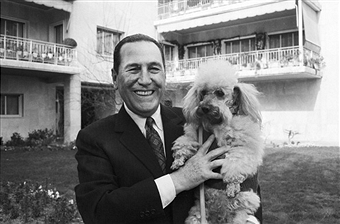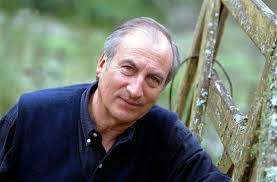A novel of some 400 plus pages set at the time of Juan Perón’s return from exile in 1973. Half of the story is in Madrid as The General and his entourage slowly prepare for the return to Buenos Aires. As the day of departure draws nigh Perón and his secretary Lopez go over the latest version of his memoirs. Lopez is frustrated by the many inconsistencies in Perón’s litany of contradictory and fictional autobiographical statements but the General has no interest in such matters as facts.

Meanwhile at the airport, Ezeiza, in Argentina a throng gathers, leading the pack are journalists, including our author, who had earlier interviewed Perón in Madrid. Distant relatives of the General have been bussed in by another journalist, who has interviewed them looking for a new angle, and finding none. Others there include the Montoneros and their rivals, all armed. There are also Perónist unions and anti-Perónists, too. There are also urban beggars and impoverished campesinos come from afar for a blessing from the bearer of Evita’s fire.
Finally there is the army that in desperation arranged for the return only now to find the situation out of control. The factions in the army blame each other but none takes action, each checkmated by another.
The clock ticks and the forces gather while Perón’s muses on the past, the present, and the future. Perón’s confidence is diamond hard. He will put things to right. The entourage flutters around him reading auguries in his choice of shoes. But those forces gathering at the airport are, as the reader sees, comets following their own trajectories, bouncing off each other. There were about two million people in, at, and around the airport where he was scheduled to land. When the shooting started, as was inevitable, the plane diverted.
Having read a lengthy biography of Perón a few weeks ago, I could navigate many of the names of the actors in the drama. Without that a reader would be lost, as was I the first time I tried to read this novel a decade ago.
 Perón always kept dogs and could be seen walking them in Madrid.
Perón always kept dogs and could be seen walking them in Madrid.
What’s to like? The portrayal of many of the supporting players is good, e.g., the relatives, the buzzing journalists, and some of the entourage. But others are cardboard like President Camorra and Lopez is an invisible man. He is there but has no substance, yet some say he manipulated everything and this is given credence in the pages here when he lip syncs a Perón speech.
I also liked the author as as journalist in his own story, which is done lightly and without making the author-journalist the centre of attention, as too many journalist-authors do.
More importantly, it seems Perón was a post-Modernist avant le mot in his refusal to privilege fact or truth. His easy dismissal of Lopez’s worries about consistency or authenticity are well handled. Perón’s explanation derived from Alfred von Schlieffen (page 210) made me stop and think. Von Schlieffen was the architect of the eponymous plan of attack on France in World War I. He was never wedded to the plans he made, but generated one after another. No sooner did he perfect one plan than he superseded it with another, because… a better plan is possible, if I thought of it so have my enemies and I have to stay ahead of them, circumstances change and plans change with them. The stereotyped rigidity of the Prussian Army did not apply to him, but then neither did it apply to the Kaiser’s army in World War I where junior line officers and sergeants had much more freedom of action than in the British army where blind discipline was enforced by firing squads.
Perón’s recollections of Eva ring true. His faults are many but he was devoted to her and she even more to him, and that is given full measure here. No cheap shots, no smart-ass remarks of the Bill Bryson kind. No easy hindsight of an ABC journalist.
Interesting also to see that Perón said that the example of Salvador Allende in Chile meant he had to go slowly. The threat of another coup, the threat even of a civil war is always there.
What is not here is the change in Perón from a man with a mission to the desire to rule period. Goal displacement occurred but there is no sign of it here. The subject and the treatment will remind read of Gabriel García Márquez’s ‘The Autumn of the Patriarch’ (1975), but this novel is much more accessible than the elliptic and, dare one say it, self-indulgent work of García Márquez.
 Eloy Martinez
Eloy Martinez
Eloy Martinez has another novel based on Eva, and that is tempting, but I found this one hard going. Maybe because I was only reading a page or two at a time, but much of the early chapters concerns the gathering kaleidoscope of Argentine society which had no interest for me. The Madrid part was more engaging. Once I started reading whole chapters at a time, I connected with it. I read while we tourists toured the goldfields of central Victoria.
The role of the army in Argentina has many dimensions, but one key one is this. In the United States, the Continental Army that defeated the British in the American Revolutionary War disbanded within days of the surrender at Yorktown. In Argentina the revolutionary army that drove the Spanish out remained under arms for forty years in continuing and continuous conflicts with the Portuguese, resurgent Spanish loyalist, Brazil, Uruguay, Chile, Bolivia, Paraguay, French adventurers, the native indians, and so on and on. For two generations it was the only Argentine institution. However much it later debased itself, it was in this way the nation itself.
Skip to content
